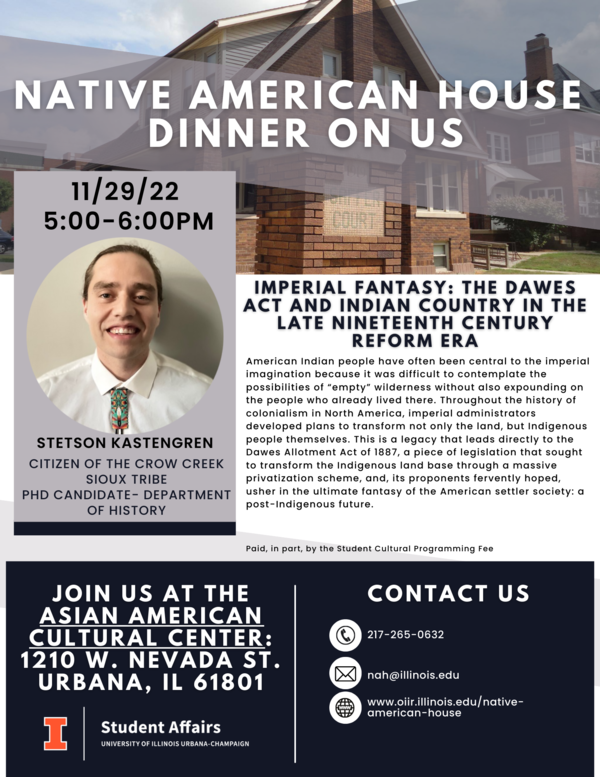Dinner On Us at the Native American House

- Sponsor
- Native American House
- Contact
- Eduardo Martinez
- emarti45@illinois.edu
- Phone
- 217-333-1300
- Views
- 255
American Indian people have often been central to the imperial imagination because it was difficult to contemplate the possibilities of “empty” wilderness without also expounding on the people who already lived there. Throughout the history of colonialism in North America, imperial administrators developed plans to transform not only the land, but Indigenous people themselves. This is a legacy that leads directly to the Dawes Allotment Act of 1887, a piece of legislation that sought to transform the Indigenous land base through a massive privatization scheme, and, its proponents fervently hoped, usher in the ultimate fantasy of the American settler society: a post-Indigenous future.
Dinner on Us is administered by the Native American House (NAH) and is part of the Lunch on Us Series within Student Success, Inclusion & Belonging.
Dinner on Us is a biweekly one-hour evening program comprising scholar and practitioner-led workshops and a meal. Workshops either spotlight a specific campus resource or promote the inclusion of Indigenous perspectives about topics such as, but not limited to, the history of colonization, Indigenous-settler relationships, and Indigenous ways of knowing and being.
Paid, in part, by the Student Cultural Programming Fee